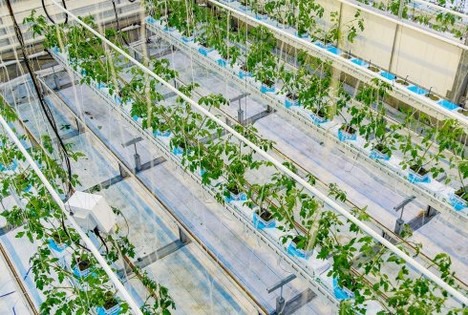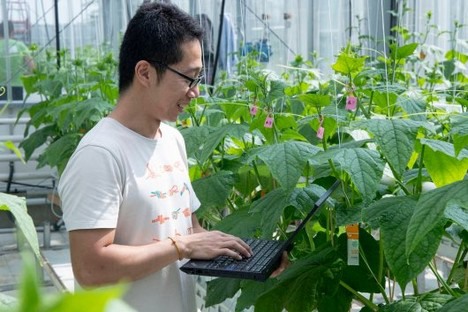Algorithms, big data and image recognition are increasingly being used in greenhouse horticulture. They improve the decisions in the field of greenhouse climate and crop production possible. The logical question is: will this make men superfluous? The answer from the Business Unit Greenhouse Horticulture of Wageningen University & Research: no.
Last week the second edition of the Autonomous Greenhouse Challenge of Wageningen University & Research and Tencent has started. Five international teams then each run a greenhouse department for six months. This is done remotely with the help of sensors, cameras and algorithms, among others. The winner is the team that achieves the best possible production with efficient use of water, food and energy.

Major step forward
The name Autonomous Greenhouse Challenge suggests that the goal is to make human beings superfluous. "This may be possible in the distant future, but for the time being automation is limited to climate control and advice on pruning policy", the team with Wageningen UR adds.
"This is a major step forward, but human beings will still be needed to perform the required cultivation activities in a good way. The people in the greenhouse need to be managed and stay motivated. That cannot be left to a few chips. Who tells employees how to properly remove leaves without damaging the crop, or where exactly to cut the roses? In addition, running a horticultural business also includes all kinds of commercial skills and insight into market conditions."

"The Autonomous Greenhouse Challenge brings horticulture to a higher level, but it is precisely because of this that the human aspects of a horticultural enterprise, such as personnel management, customer contact, innovation and marketing, become even more important. This means that horticulture remains a versatile field in which, in the coming years, further-reaching cooperation between people and technology will result in more valuable products with minimal inputs."
Source: Wageningen University & Research
For more information:
Feije de Zwart (contact)
